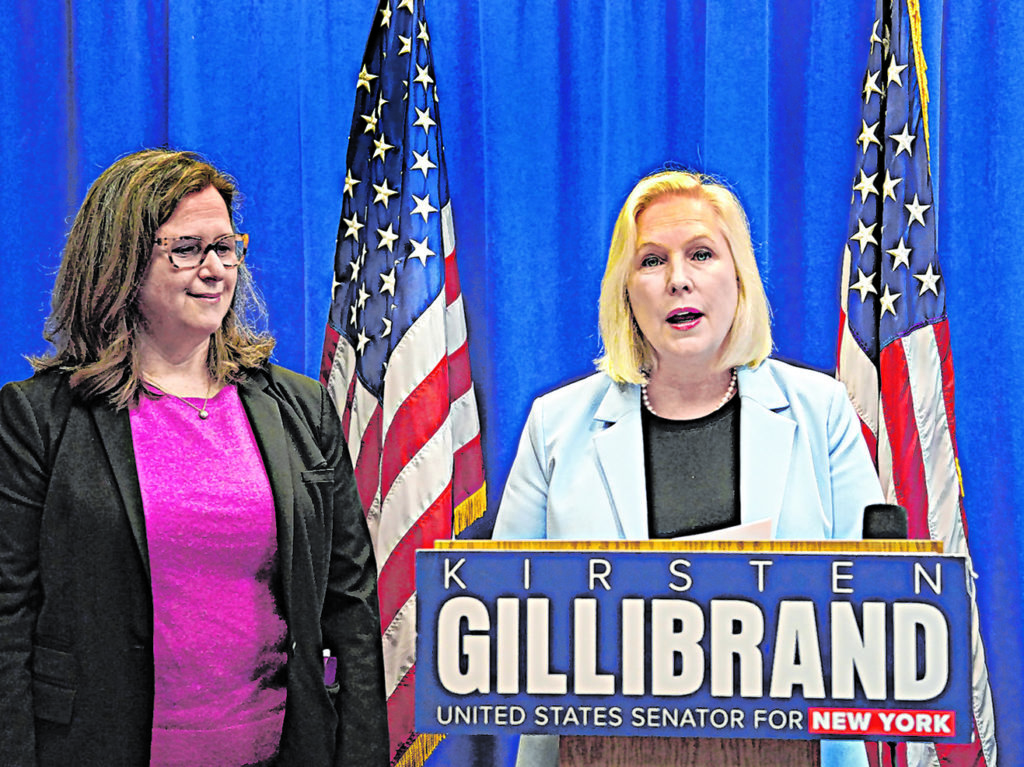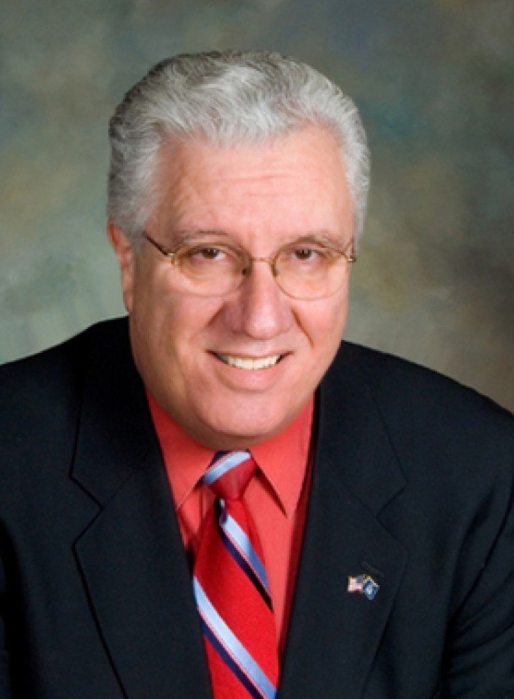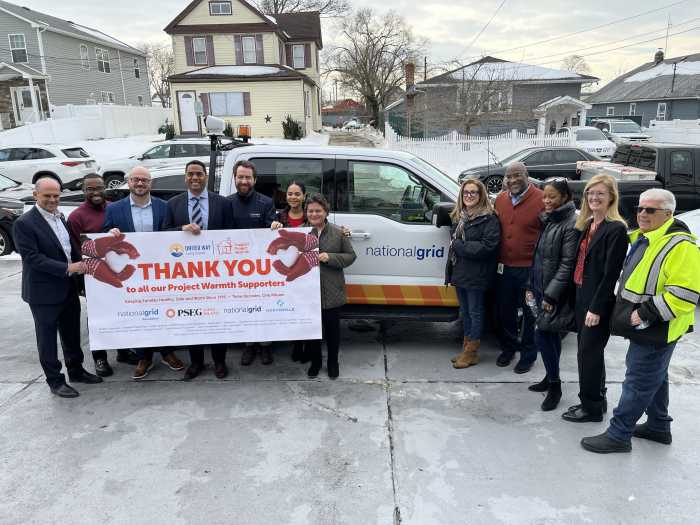On Friday, April 29, U.S. Senator Kirsten Gillibrand visited Syosset Hospital, 221 Jericho Tpke., to unveil her five-point policy package to cut down the cost of prescription drugs, the “Gillibrand Prescription for Lower Drug Prices.” Gillibrand has pushed congressional leadership to also take action on lowering the price of drugs.
New York State Senator Jim Gaughran, Syosset Hospital Executive Director Michael Fener, and Northwell Health Vice President and Chief Pharmacy Officer Dr. Onisis Stefas, joined Gillibrand during her announcement.
The policy package is said to address the costly prices of prescription drugs.
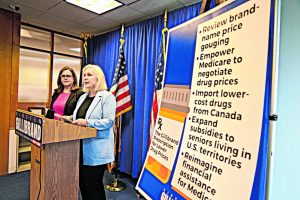
“While our nation is recovering from the pandemic, drug prices remain unacceptably high, which puts a heavy financial burden on older adults and families on Long Island and across the country,” stated Senator Gillibrand, who is a member of the United States Senate Special Committee on Aging. This committee can “study issues, conduct oversight of programs, and investigate reports of fraud and waste,” according to the committee’s webiste (https://www.aging.senate.gov). It also stated the committee “has served as a focal point in the Senate for discussion and debate on matters relating to older Americans.”
According to Gillibrand, “I am releasing the ‘Gillibrand Prescription for Lower Drug Prices’ plan to provide a framework for slashing drug prices. From fighting price gouging to importing affordable drugs from Canada to enabling Medicare to negotiate drug prices, this plan will help us bring down costs for countless Americans.”
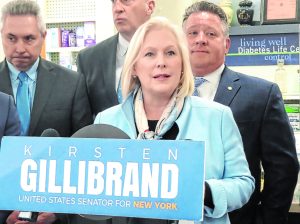
“At Northwell Health we see medications as an investment in the health and well being of our patients and communities we serve,” stated Dr. Stefas. “The Prescription Drug Pricing Bills Package has been designed to focus on making medications more affordable to the American people. Reducing the financial burden associated with prescription drugs will result in more patients getting access to the medications they need, adhering to their medication regimen and ultimately reducing overall healthcare expense.”
“Prescription drug prices are through the roof, making it difficult for millions of elderly and vulnerable Americans to control serious health issues,” commented New York State Senator Gaughran. “I applaud Senator Gillibrand’s efforts to reign in out-of-control prescription drug prices and offer any assistance that I can provide on the state level.”
The essential five-points of the “Gillibrand Prescription for Lower Drug Prices” are:
Reimagine financial assistance for Medicare: Legislation to develop the Medicare Cost Assistance Program, a new program to assist with Medicare Part A and Part B premiums and cost-sharing for low-income individuals. This would redefine financial assistance for Medicare Part A, Part B and Part D. The policy would also expand the Extra Help program to provide premium and cost-sharing assistance to eligible low-income individuals with Medicare Part D.
Review brand-name price gouging: A policy that would level the market for Americans purchasing prescription drugs by securing the price in the United States to the median price in Canada, the United Kingdom, France, Germany and Japan.
Empower Medicare to negotiate drug prices: A bill that directs the Secretary of Health and Human Services to negotiate lower prices for prescription drugs under Medicare Part D.
Import lower-cost drugs from Canada: Measures to allow patients, pharmacists and wholesalers to import safe, and affordable medicine from Canada and other major countries.
Expand subsidies to seniors living in U.S. territories: Legislation that would make Medicare beneficiaries in U.S. territories, such as Puerto Rico, eligible for the Medicare Part D Low Income Subsidy program. Under current law, low-income Medicare beneficiaries in Puerto Rico and other U.S. territories are ineligible for Medicare Part D subsidies. This program, known as “Extra Help,” provides federal subsidies to help low-income seniors with their monthly premiums and other out-of-pocket prescription drug costs.
“As rising inflation has recently increased the cost of living for so many Americans, the already skyrocketing cost of prescription drugs has become utterly untenable. Today when you go to the pharmacy you can be charged two to three times more, as other people in other countries are paying for the exact same medicine,” expressed Gillibrand. “It means streamlining programs, eliminating asset tests and expanding the extra health program. These are common sense reforms that will help combat inflation and help decrease the cost of living.”




